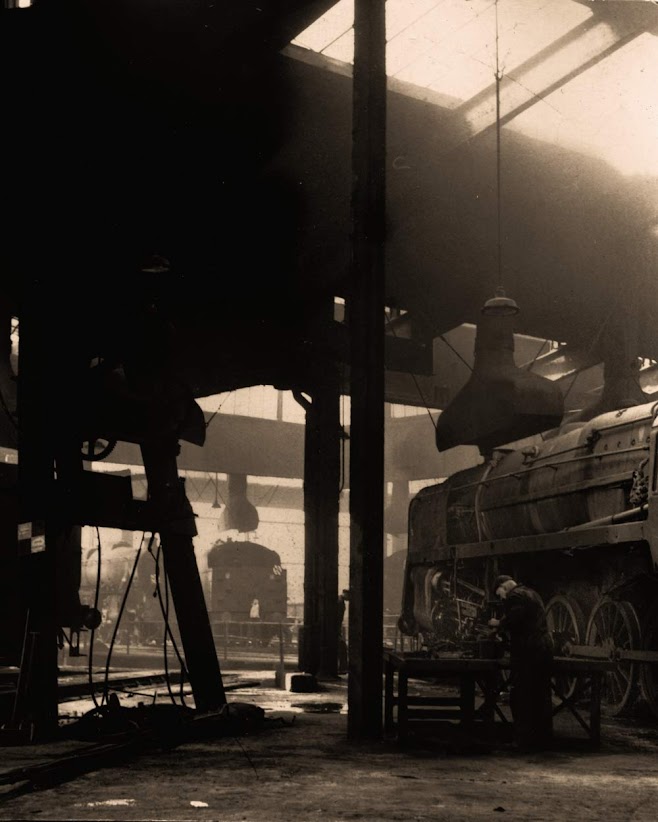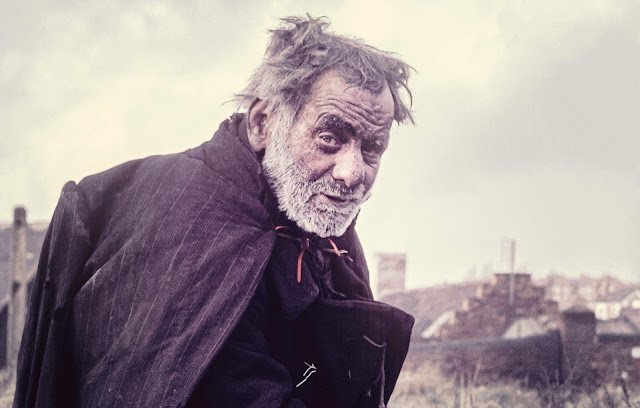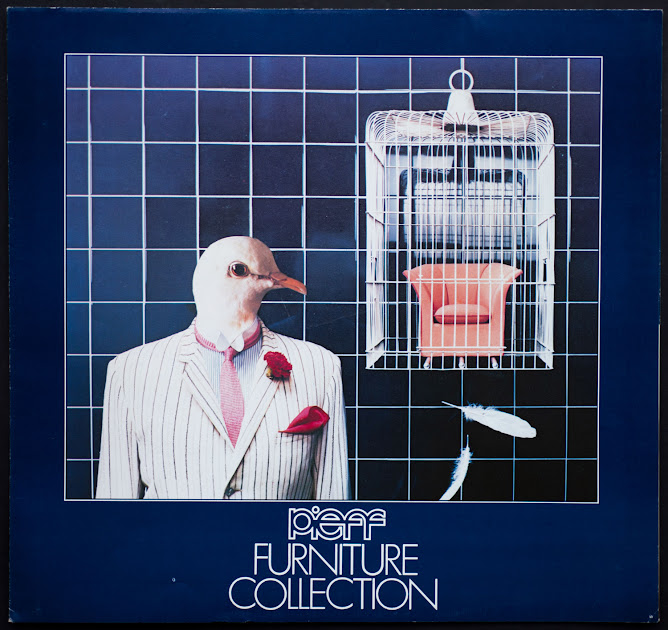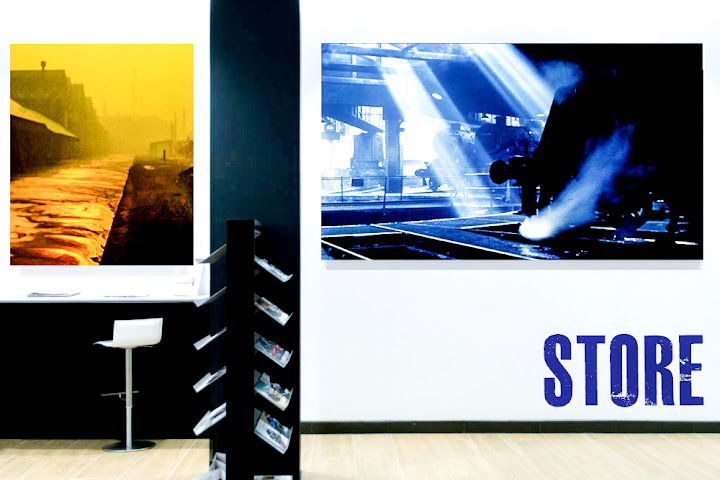Peter Donnelly - Birmingham War memories and poems on the 50th anniverary of VE day
Memories on the 50th Anniversary of V.E. Day by Peter Donnelly in 1995
As the 50th anniversary of V.E. Day draws ever closer, the memories of those agonizing years of war flood back, doors closed in my mind for two score years and ten are re-opened. All pictures now released from the locked-in darkness of my early youth become clearer as I write.
I was born at 214 Wash Lane, South Yardley, Birmingham on the 19th April 1932 (the day before Hitler's birthday, 20th April). My mother's name was Gladys Delia Donnelly, my father's name, Dennis Francis Donnelly, my brother's name is Michael Donnelly, my name Peter Donnelly.
On the day war was declared and announced on the wireless, my brother and I were shopping with mother in the Bullring markets. On hearing the announcement, she clutched both of our hands in hers and, in a voice full with emotion and her eyes filling with tears, urged my brother and I to make our way home as quickly as possible to await father's return from work. As we hurried off down through the Bullring, past St Martin's Church down to Bromsgrove Street to catch the number 15 bus home, seeing tears in my mother's eyes brought tears to my own. Why was I crying at her distress? I was seven years old, too young to imagine the agonies and the heartbreak to come. It was only later on in life I came to understand my mother's sadness and all the shedding of tears that day, September 3rd 1939, in the Bullring market place. She had experienced all the agonies of war before.
My mother met my father, a soldier, at St. Chad's Hospital, Birmingham, during the 1914-18 war. My father had been wounded at the Battle of Mons and shipped back to England to recover. He arrived at St. Chad's hospital where my mother was a young auxiliary nurse. They met and fell in love_ Alter his wounds were patched-up, father was shipped back to the trenches in France. He survived. In 1919, they were married at St. Michael's Roman Catholic Church in Birmingham. Directly after their wedding, my father, still in the army, was once again shipped out of England. This time with Churchill's Volunteers to Archangel in Russia: his battalion was to escort home British diplomats and their families caught up in the Bolshevik revolution. Once again, he returned home safely. Despite all the odds against, my mother's and my father's love for each other had triumphed. My mother summed up their survival by telling my brother and I, "it was God's wish".
During the early part of the second world war, father was a fire watcher at Halfords' warehouse in the city centre where he was employed as a warehouseman. Most evenings he was away from home carrying out his fire-watching duties. Sometimes, he would arrive home early and join us in the shelter. The sound of his voice as he greeted mother was always a great relief, for some reason I always felt safe when he was with us. He had a soft gentle Irish accent, and he never seemed to worry or raise his voice.
I remember the first air raid on Birmingham, there were no sirens, only policemen pedalling furiously on their bicycles up and down the road outside our home, blowing long piercing blasts on their whistles. Our first air-raid shelter was the kitchen table where mother and my brother and I would cling to each other beneath its frail top, in abject fear at what we imagined was to come and praying that father would arrive home early. Our second temporary air-raid shelter was on the other side of Birmingham in Stoke Street, off Granville Street, Ladywood. Our auntie Annie and uncle Arthur kept a small grocer's shop on the corner of Stoke Street and William Street (Coughlin's). They and their neighbours had cleared out their coal cellars, knocked holes in the adjoining wails and created a makeshift communal shelter. Aunt and uncle had insisted that mother should take us over to the shop, where we would be safe. I remember the ritual of catching the bus in Hob Moor Road every late afternoon into Birmingham, then catching the tram that rumbled and rattled its way up Holloway Head, getting off at the Queen's Hospital and making our way to aunt and uncle's. I remember the kindness of their neighbours and their comforting comment: "Don't you worry, Bab, you'll be safe here with us", as we made our way down the cellar steps to the welcoming dark. I remember other comments too, comments not voiced with the same warmth and care, but more out of nervousness and underlying fear: "God help 'em, somebody's copping it tonight"; "That one was close"; "Sounds like one of ours"; "God help us, that one's landed in the city centre"; and the most chilling comment of all, from an old man who spoke in a voice lust above a whisper, "They say you never hear the one that gets you". When eventually we were allocated our own Anderson Shelter, the brief silences that interspersed the noise of the blitz surrounding our small corrugated shield were more threatening to me as I constantly recalled the words of the old man in the cellars of Stoke Street.
I remember clear, calm moonlight evenings being violently interrupted by the frightening sounds of wailing sirens and mother and my brother and I making our way hurriedly to the shelter at the top of our garden, pillows and blankets tucked under our arms and mother panicking — had we got the lamp? and was the lamp full with paraffin? I remember the light from the small lamp casting its flickering shadows across the small confines of the shelter, the smell of paraffin fumes mixed with the damp, musty odour of the shelter's interior, I remember the sound of mother's Rosary beads, bead brushing against bead, as she whizzed through the decades of the Rosary "Hail Mary, full of grace, the Lord is with Thee". I remember the smell of lavender from mother's cardigan as she'd throw her arms over us as we lay in our beds — her attempt to shield us from the screaming bombs that seemed to be falling and exploding all around. I remember her desperate pleading to God to protect and keep her babies safe. I remember the big anti-aircraft guns on Hob Moor Road Rec., the sound of the gunnery sergeant's voice as he bellowed through the night the order to fire and our shelter shuddering at the power of the guns' charge. I remember the searchlights' slow white ribbons of light meticulously searching the sky above us.
Anguish in an Anderson Shelter, Birmingham 1940 - 42
Dear God, save my babies",
As the bombs fell From the bellies
of armies with metal clad wings.
"My babies, my babies,
Dear God, save my babies",
As mother pleaded, Clutching our fears
and our tears to her apron strings.
"My babies, my babies,
Dear God, save my babies",
As the sergeant fired 1-2-3-4 through the light
searching night and the din.
"My babies, my babies,
Dear God, save my babies",
As the guns roared And rattled
all the small stones in the earth down the tin.
"My babies, my babies,
Dear God, save my babies",
As the all-clear sounded Wailing relief
at the approaching new dawn.
"Our babies, our babies,
Dear God, save our babies"
From man's madness
Aimed at children to all our mothers born.
I remember the night Coventry was blitzed, my brother and I stood on the top of our shelter, we could see on the horizon the huge glow in the sky from the burning city. I can, today, still hear the intermittent drone of the German bombers as they made their way across the sky, seeking out their targets. The trump-trump sound as their bombs detonated near and far away and the spock-spock sound of anti aircraft shells echoing their explosions into the vast emptiness of the heavens above. I can recall collecting shrapnel along Wash Lane on our way to school (Corpus Christi, Stetchford) on the mornings following the raids. I remember the various colours of the shrapnel: grey, thick, jagged steel tinged with the colours of a rainbow, bright orange strips of copper and pale grey smoke-pitted aluminium. Some of the fragments were still warm as I pushed them into the pockets of my short trousers — I could feel their heat through the pockets' lining. I saw the German bomber that had been shot down by our anti-aircraft guns; it had crashed onto the railway embankment just down the line from Stetchford Station. We sneaked off from school during the dinner time to look at the wreckage: one of the kids' fathers had told him it was a Thornier bomber; I could not tell what it was, it looked all smashed to smithereens to me. The wreckage was surrounded by black burnt-out oil and the still-smouldering grass on the embankment.
One of my saddest memories of all is of my one young school-friend, Desmond McCarthy, a companion of many scrumping adventures, who, along with the majority of his family — father, brothers and sisters — was killed by a direct hit on his home in Bordesley Green East. Only his mother, elder sister and the baby survived. I recall all of their coffins in line along the centre aisle of Corpus Christi Church, all facing the altar, and the sadness etched deep on the face of Father Cullen, our Parish Priest, as he conducted the Requiem Mass. All the way through the Mass I was Curious as to which coffin Desmond was in, and what his face looked like under the coffin lid. I remember the Requiem Prayer, the "De Profundis", as the congregation read the words from the Prayer Books; "Out if the depths I have cried to Thee, 0 Lord. Lord hear my voice..."
On March the llth, 1941, our own dear father was killed by a bomb during an air-raid on Birmingham. He was killed in Millhouse Road, South Yardley, He was only 44 years of age. l cannot remember much of my father's Requiem Mass. I do recall my brother served at the altar. My strongest memories, however, are of the funeral itself: seeing my father's coffin covered in the red, white and blue of the Union Jack and an officer of my father's former regiment helping my tear-tom mother into the large black funeral car, and the long, long, tortuous drive to the cemetary from our home in Wash Lane to St. Bernard's Monastery, Olton
I remember, all of the houses we passed in the lane had their curtains drawn, and my mother sobbing throughout the journey. I remember mother calling out father's name, "Dennis, Dennis. Oh, my dear Dennis", as his coffin was lowered into the dark earth, and all our close relatives surrounding the graveside; aunts, uncles, cousins, gran and grandad, all dressed in sombre black, and for the first time since the news of his death, my tears flowed unabated-
Burdened Heart, Birmingham 1939-45
Oh mother's heart, don't grip us so, The screaming bombs will shortly go.
Oh mother's heart, so warm and dear,
It's over now, listen, there's the all-clear.
Oh mother's heart, now cold and dead,
Did life's wars bear you early to your earthy bed?
My brother and I were away from home at the time of my father's death. We had been evacuated along with other children from our school to Skegby, near Mansfield. We were billeted with a coal miner's family, a Mr. & Mrs. Glasby, at their small villa house in Mansfield Road. We were the last of the children to find a billet, not many families wanted to take more than one child. Mother had told us to stick together and not be separated, and for a while we were a problem. Mr. and Mrs. Glasby solved the problem, they took us in despite having two children of their own. The night before we were evacuated to Skegby, father took my brother arid me to one side and made us promise to look after mother should anything happen to him. I remember the salty taste of mother's tears as she pressed our faces to hers, crying her farewells as we were about to board the evacuees' train at Castle Bromwich station. I remember Father O'Keefe, our junior parish priest, arriving at our temporary home and breaking the news of father's death: my brother burst into tears, he is three years older than me and he understood the absolute sadness of the situation. I, for reasons unknown to me at the time, did not cry I have often thought of that awful day and my lack of tears and only now, in retrospect, can I excuse myself Being away from the family home and not having the day to day contact with my father had dulled my sense of our togetherness. I'll always remember the Christmas before the fateful March day that Father O'Keefe bore the sad news of father's death. Mrs. Glasby had locked us out of the house on Christmas morning, to stop us from getting under her feet as she prepared the Christmas dinner, she'd said, The two of us, my brother and I, wandered off to Skegby Downs, the wind was wild, the Downs were bleak and covered with snow, it was my first experience of hearing the wind singing through the telephone wires, a whooshing whining song, as it carried the snow off the downs, whirling it and swirling it around in small white dusty clouds. My knees were blue with cold between the bottoms of my short trousers and the tops of my long socks, my fingers freezing despite constantly putting them in my mouth and blowing my hot breath on them to keep thern warm.










Comments
Post a Comment